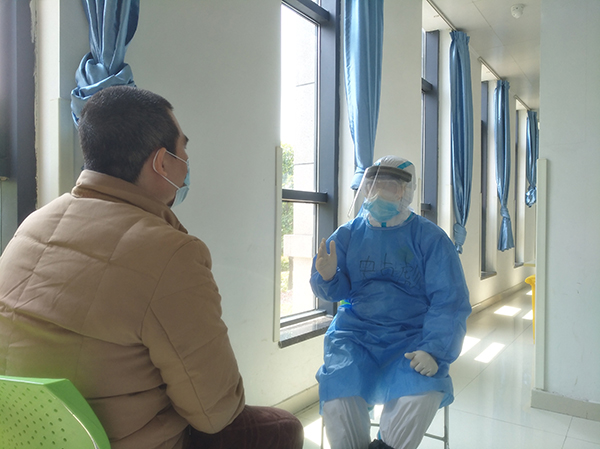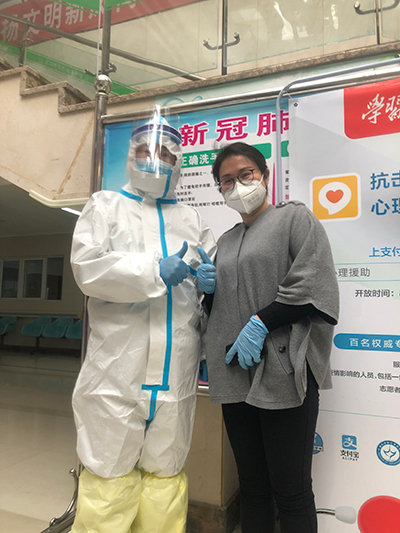The hidden cost of COVID-19


Psychological challenge
Three days after Wuhan lifted its 76-day lockdown on April 8, as the COVID-19 outbreak waned, Shi and his team arrived at the city's Wuchang Railway Station. Before that, Shi had talked to some of the medical workers about their worries and concerns over the phone or online.
With a population of 11 million, the city was the worst-hit in China, with more than 50,000 cases and at least 3,800 deaths.
Their first stop was Jinyintan Hospital, which specialized in infectious diseases and was designated for treatment for the initial cases in Wuhan. Dedicated nurses and doctors battled to save thousands at the start of the pandemic.
"According to our mental health evaluation survey after arrival, the pandemic caused a high prevalence of anxiety and depression among the medical workers in the early stages," Shi says. Some even had post-traumatic stress disorder, which is caused by stressful, frightening or distressing events, with symptoms including repeated nightmares and flashbacks, he adds.

A study published in The Lancet in March last year echoes that up to one-sixth of the Chinese frontline health workers surveyed between Feb 17 and 24 reported mental health challenges. The prevalence of psychological distress, anxiety and depressive symptoms were 15.9 percent, 16 percent and 34.6 percent respectively. A total of 4,679 doctors and nurses from 348 hospitals across the country took part in the survey conducted by Peking University and Capital Medical University.
In a viral interview with China Central Television in January last year, after hearing that one of his colleagues was dying due to the virus, doctor Hu Ming couldn't stop crying in front of the camera.
"Medical workers are humans first, who have their limits. It must be terrifying and saddening to see patients pass away within days. With no time to process, it means trauma after trauma for frontline healthcare providers, who need the right support to cope with the stress," Shi says.
Shi had a doctor who blamed herself for her parents' and child's contamination. After testing positive, she sent her child to her parents' home and later they got sick. She kept saying that it was her fault. Although they all recovered, she could not forgive herself and dared not meet her child.
Shi has talked with the doctor many times to ask her to reunite with her family.
But not all people are willing to open up to therapists. Shi finds that many people, especially medical professionals, have difficulties admitting that they suffer from psychological distress, which is sometimes stigmatized as weakness or a personal flaw.
To help these people know themselves better and feel connected with families and society, Shi's team has organized seminars, training and support groups with various themes, such as how to get on well with colleagues and family members and how to communicate with patients.
Through livestreaming platforms and social-media apps, Shi can talk to people in need anytime, anywhere.




































